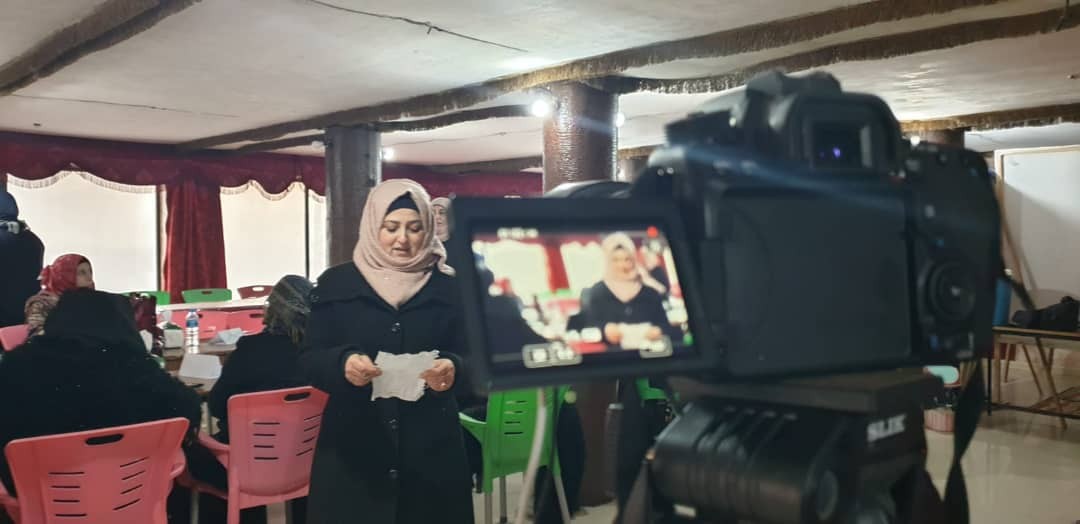
Salwa Abdul Rahman is from Idlib. She is a graduate of The Institute of Journalism and Media. She works in producing visual media content, a correspondent for Aleppo Today Channel and a member of SWPM.
Salwa Abdul Rahman was born in Idlib, but after her marriage she moved to Aleppo to live there. She studied English literature for three years in Aleppo University, but she had to stop before graduation because she gave birth to her first baby. She went back to study during the revolution and she graduated from the Institute of Journalism and Media.
Salwa says that before the eruption of the revolution in Syria in 2011, her role in society was limited to being a housewife and a mother. She wasn’t satisfied with that limited role, and despite having good financial conditions at the time, she still had a desire to work. When bombardment on al-Izaa Neighborhood, where she was living in Aleppo, intensified, families left the neighborhood and Salwa left with her kids for Idlib, whereas her sick husband remained in Aleppo to continue his medical treatment. During one of his visits to Idlib to check on his family in 2015, his health condition deteriorated, and Salwa couldn’t take him to a hospital, as medical facilities were targeted with bombardment, so he passed away leaving her with their three kids.
Salwa says that she started to feel uncomfortable as her parents were financially providing for her kids, and she didn’t want to increase the burden they already have. She was interested in writing and blogging, but she didn’t have a personal computer, so she was using the traditional way to write, using a pen and paper. One of her friends offered her a job to work for one of the news websites, and that marked the beginning of her journalistic work in 2015.
During her study in the Institute of Journalism and Media Salwa learned new skills and she moved from working in written to visual Journalism and she worked with several media outlets. Currently, she is a correspondent for Aleppo Today TV channel.
Salwa speaks about her participation in the revolution saying: “I started to get involved when I moved to Idlib, where people had already broken the wall of fear so early. I used to take part in the demonstrations and chant for freedom with the peaceful female and male protesters. By time, I cooperated with the activists to be a link between the revolutionaries and civilians. I was happy to support the peaceful unarmed protesters who were faced with bullets and tanks”. Salwa tells us about why she took part in the revolution. “When Hafez al-Assad bombarded the city of Hama in 1980s I was a child, but I remember well the panic we felt back then, and we heard stories about the brutality of this regime. When Syrian men and women started to take to the streets in 2011, the regime confronted them with fire and detention”. Salwa says